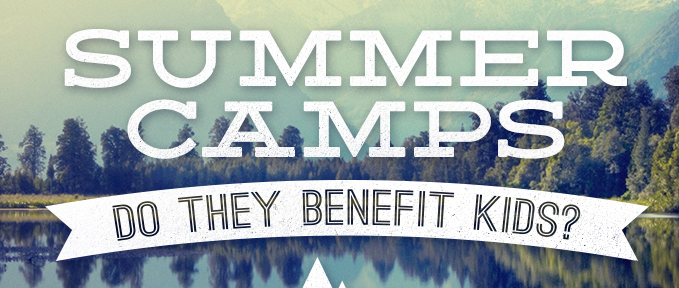
Summer Camps, Do they Benefit Kids?
Yes. The answer is yes, camps benefit kids.
To camp kids, camp parents, and camp counselors, this goes without saying. The biggest benefits of summer camp come in the form of friendships and memories that will last a lifetime. The value of gains in interpersonal skills and experience is impossible to measure. Fortunately, there is also a wide range of physical and psychological benefits that we can measure. Gains in self-esteem, cardiovascular health, and a sense of empathy and community are just a few of the tangible reasons we highly recommend summer camp for every child.
Childhood BMI gains for
Kindergarten age: 3.8x faster during the summer months
First Grade age: 2.3x faster during the summer months
During summer months, already overweight children gained at a faster rate than non overweight children.
Hispanic and Black children displayed higher BMI than white children comparable on other variables, and this gap grew during summer months and shrank during school months (Effect of School)
Adolescents involved in a program of play-based physical activity saw a 7% decrease in body fat over an 8 week period.
On Average, American children spend 5 minutes per day playing outside. The American Academy of Pediatrics recommends at least an hour.
The American Academy of Pediatrics and the National Heart, Lung and Blood Institute recommend no more than two hours of screen time per day for children.
About 1 in 5 children reports feeling “a great deal of stress”, although parents perceive stress in their children at a rate of 3%. This means that parents detect present stress in children no more than 15% of the time.
Camp has an especially significant impact on children with chronic illnesses and disabilities.
For children with chronic medical conditions, a one week summer camp session was associated with lowered anxiety an an increase on the child’s attitude toward illness scale.
Benefits of disability-specific camps are to have the opportunity to come together, share common experiences, and bond with their peers with disabilities.
Disabled children who attended camp showed statistically significant increases in the following self-report measures, 12 weeks after attending: I am good at talking with friends, I am good at taking care of myself, I am good at doing projects.
Teens who attended camp showed higher levels of civic values, civic engagement, and skills in forming social networks.
At a camp for children with serious illnesses, campers reported statistically significant differences in their feelings towards camp friends, rating them higher on qualities like listening and understanding.
Six months after camp, half of the campers remained in touch with friends met at camp.
References:
The Effect of School on Overweight in Childhood: Gain in Body Mass Index During the School Year and During Summer Vacation I. Paul T, von Hippel, PhD, Brian Powell, PhD, Douglas B, Downey, PhD, and Nicholas J, Rowland, MA
A Dose of Camp Dost: Meeting the Psychosocial Needs of Children with Cancer. Brandon G. Briery, MA, Brian Rablan, PhD. Read More: http://informahealthcare.com/doi/pdf/10.3109/01460868809026828
THE SOCIAL IMPACT OF A SUMMER CAMP FOR YOUTH WITH TOURETTE SYNDROME Author: Michael Griswold, University of New Hampshire
THERE WAS MORE OUT THERE THAN OUR STREET: EXPLORING A STRUCTURED CAMP CURRILCULUM AS AN AVENUE TO FOSTERING CIVIC ENGAGEMENT AND SOCIAL CAPITAL Author: Tracy Mainieri, Illinois State University.
ACA Directions: Youth Development Outcomes of the Camp Experience
Psychosocial Changes Associated with Participation in a Pediatric Summer Camp
Summer Camp Experiences: Parental Perceptions of Youth Development Outcomes

